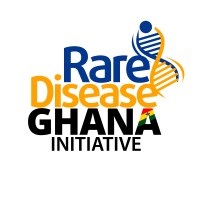
Action plan being developed for rare diseases patients
An African summit on rare diseases has been held in Accra to dialogue on ways to support rare diseases patients on the continent with the best medical support and care to enable them to enjoy normal life.
The summit, on the theme: “Achieving Universal Health through Equity,” brought together medical experts and rare disease patient organisation groups from countries such as Botswana, Kenya, Lesotho, South Africa and International organisations including the World Health Organisation (WHO) to develop an action plan to elevate the voices of people living with rare diseases to get the needed support from policymakers.
The summit was hosted by Rare Disease Ghana Initiative (RDGI) in partnership with Rare Disease International (RDI).
The Executive Director of RDGI, Mr. Samuel Adjei Wiafe, said people everywhere in the world deserved the care and health they needed and that the case of people living with rare diseases was not different in that direction.
He disclosed that there were over 300 million people worldwide living with over 7,000 rare diseases, yet in Africa especially Ghana, there was no adequate data, research and investment on issues of rare diseases.
The Africa region, he said, was faced with challenges including limited diagnostic infrastructure and expert centres, a lack of public awareness, the absence of national and regional frameworks.
What the issues are
Persons living with rare diseases and their families, he said, were confronted with various challenges, notable among them were the lack of awareness of the diseases, delayed diagnosis and difficulty in accessing appropriate treatment and care.
Aside from these challenges, he said, many families living with rare diseases faced social exclusion, discrimination and stigma which hindered their full participation in society.
To address that, he said “there has been a global call for action on rare diseases in Africa and patient groups and patient organisations like ours have been instrumental and active in addressing some of these challenges”.
He said through advocacy by Rare Disease International there were several emerging global initiatives to address some of the unmet needs of the rare disease community including those in Africa.
“Within the Africa region, health systems are adapting. An important advancement is the ratification of the African Medicine Treaty’, he stated, adding that with these efforts, the knowledge gap of rare disease among medical professionals would be bridged.
“The COVID-19 pandemic has exposed us all to the gaps and inequalities in our health and social system and these can only be widened if urgent and deliberate actions are not taken.’’
The continent, he said, therefore needed a clear direction as to how most vulnerable populations, including people living with rare diseases would be cared for and hoped that through the summit innovative ways would be adopted to address their challenges.
Government support
The acting Head for Public Health and Health Promotions at the Ministry of Health, Mr. Kojo Atuahene, lauded Rare Disease Ghana Initiative for hosting the summit as he explained that much attention was not given to persons with rare disease conditions.
“Information about rare disease conditions have more often than not been overshadowed by what some people might term “Newsworthy Information”.
He stated that the National Health Policy had localised the Universal Health Coverage as a means not to exempt persons with rare diseases from receiving high quality healthcare services.
Mr. Atuahene also gave an assurance that the ministry would liaise with other stakeholders to ensure quality health care delivery for persons with rare diseases in the country.
“We are currently working with quite a number of civil society organisations (CSOs) to make healthcare more accessible, of better quality and more affordable to our people” he added.
Networking
The Chairperson for Rare Diseases International, Ms. Durhane Wong-Rieger, recognised the summit as a platform international partners could take advantage of and learn from the progress taking place in Africa, and add up to the existing knowledge and mechanisms to solve the problems affecting people living with rare diseases.
She further mentioned that the creation of a network with medical professionals on the continent would help bring solutions to rare disease eradication and treatment globally.
